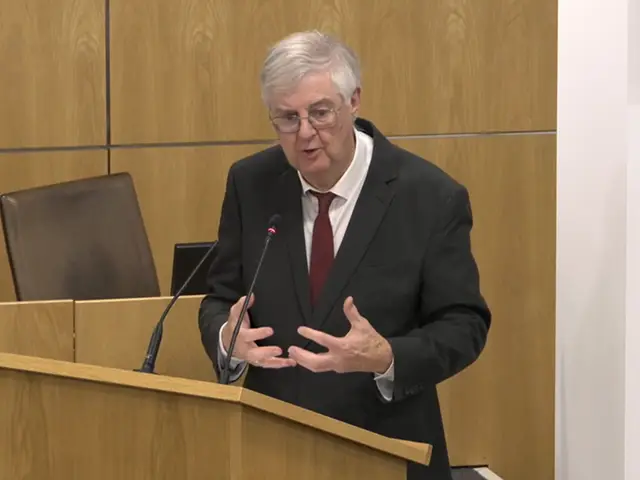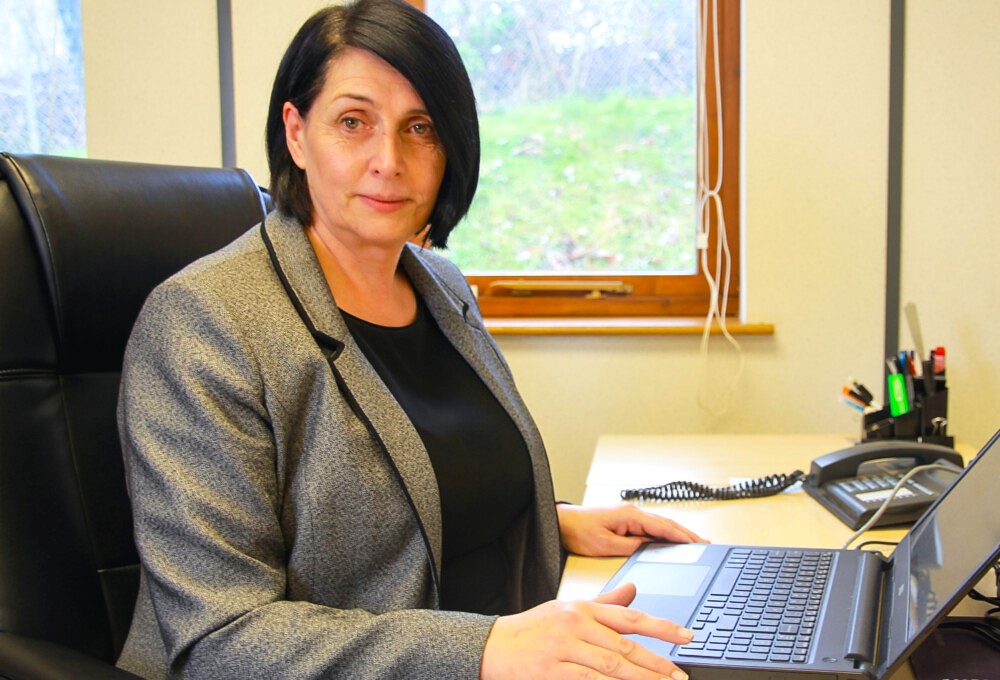Business
Welsh beer and pub sector injects over £1.5 billion into economy

Industry warns of financial strain as WBPA urges Senedd for urgent business rates reform
WALES’ beer and pub sector contributes more than £1.5 billion to the national economy and supports over 68,000 jobs, but rising costs are putting its future at risk, the Welsh Beer and Pub Association (WBPA) has warned.
The WBPA’s inaugural State of the Nation 2025 report highlights the sector’s crucial role in providing local employment, boosting tourism, and sustaining rural communities. However, at the report’s launch at the Senedd on Wednesday (Jan 22), the association cautioned that ongoing financial pressures are threatening its viability.
Rising closures and financial disparity
Wales has experienced higher pub closures than the rest of the UK, with 6.5% of pubs shutting down between 2018 and 2023, compared to 4.6% in England and 3.9% in Scotland. The WBPA attributes this to a combination of factors, including lower business rates relief, which leaves Welsh pubs an average of £6,000 worse off annually compared to their English counterparts.


While the rate of closures slowed slightly in 2024, the impending increase in National Minimum Wage and National Insurance Contributions is projected to cost the sector over £650 million, adding further strain on an already fragile industry.
Call for urgent reform
The WBPA is calling on the Senedd to introduce permanent business rates reform to provide certainty for pub operators, mitigate soaring costs, and phase in new employment charges set to take effect in April. It is also advocating for beer duty to be reduced to align with EU averages.
Emma McClarkin, CEO of the WBPA, said: “The beer and pub sector is a vital Welsh industry that so many people rely on for their livelihoods. It is economically and socially significant, providing jobs for young adults and those seeking flexible work.
“Our industry pours more than a billion into the economy and is crucial for jobs, communities, and tourism. However, with pubs making just 12p profit per pint on average due to high business costs, the sector is in a fragile state.
“If the Senedd supports the industry, our sector and its workforce can continue to boost the economy, employ more people, and remain at the heart of Welsh communities.”

Preserving a Welsh tradition
The WBPA is urging policymakers to collaborate with the industry to create a sustainable economic framework that minimises additional costs and regulatory burdens. It argues that such measures would allow pubs and breweries to plan financially and continue operating across the UK.
Nick Payne, Chairman of the WBPA and Managing Director of S.A. Brains, said: “Our sector has a rich history and unique character that sets it apart from the rest of the UK. Over the past decade, we have seen a surge in local breweries, and the past year has seen a slowdown in pub closures.

“However, we cannot ignore the fact that margins are still tight and being squeezed further. Many operators are struggling with rising costs, and the national economic outlook remains uncertain.
“We need policymakers in Cardiff Bay and Westminster to reassess their policies, particularly their cumulative impact, and work with us to establish regulatory and economic frameworks that will keep our breweries and pubs at the heart of local communities and economies.”
Business
Senedd approves £116m transitional relief for business rates

BUSINESSES facing sharp hikes in tax bills after the 2026 revaluation will see increases phased in over two years after the Senedd backed a new transitional relief scheme.
Senedd Members unanimously approved regulations to help businesses which face significant rises in non-domestic rates bills after a revaluation taking effect in April 2026.
The Welsh Government estimates the transitional relief will support 25,000 ratepayers at a cost of £77m in 2026/27 and £39m in 2027/28. The partial relief covers 67% of the increase in the first year and 34% in the second.
Mark Drakeford, Wales’ finance secretary, stressed the £116m scheme comes on top of permanent rate reliefs which are currently worth £250m a year. He said ratepayers for two-thirds of properties will pay no bill at all or receive some level of relief.
The former First Minister told the Senedd: “In providing this transitional relief scheme, we are closely replicating the scheme of relief we provided following the 2023 revaluation – supporting all areas of the tax base in a consistent and straightforward manner.”
The Conservatives’ Sam Rowlands expressed his party’s support for the transitional relief scheme which will help ratepayers facing sharp increases after the 2026 revaluation.

He said: “We are grateful that the Welsh Government has at least brought forward a scheme that will soften the immediate impact for thousands of Welsh businesses.
“We also understand that if these regulations are not approved or supported… this relief scheme will not be in existence. Many businesses across Wales would face steep increases with no protection at all and that is certainly not an outcome we would want.”
But the shadow finance secretary warned businesses up and down Wales are worried about the increase in rates that they are liable to pay.
Advocating scrapping rates for all small businesses in Wales, Mr Rowlands said: “We’ve heard first-hand from many of those in the hospitality and leisure sector, some of whom are facing increases of over 100% in the tax rates they are expected to pay.”
Responding as the Senedd signed off on the scheme on December 16, Prof Drakeford said the Welsh Government had to wait for the UK budget to know if funding was available. As a result of the time constraints, the regulations were not subject to formal consultation.
Prof Drakeford agreed with Mr Rowlands that voting against the regulations would not improve support, only eliminate the transitional relief package before the Senedd.

Earlier in Tuesday’s Senedd proceedings, former Tory group leader Paul Davies warned Welsh businesses have already been hit with some of the highest business rates in the UK.
He said: “The latest business rates revaluation has meant that some businesses are now facing rises of several hundred per cent compared with previous assessments…
“Whilst I appreciate that a transitional relief scheme will help some businesses manage these changes, the reality is that for many businesses it’s not enough and some businesses will be forced into a position where they will have to close.”
Business
Pembrokeshire industrial jobs ‘could be at risk’ as parties clash over investment

TRADE unions have warned that hundreds of industrial jobs in Pembrokeshire could be at risk without stronger long-term support for Welsh manufacturing, as political parties set out competing approaches ahead of the Senedd elections.
TUC Cymru says its analysis suggests 939 industrial jobs in Pembrokeshire could be vulnerable if investment in clean industrial upgrades were withdrawn, warning that policies proposed by Reform UK, and to a lesser extent the Conservatives, pose the greatest risk to industrial employment.
The warning comes as the union body launched its “Save Welsh Industry – No More Site Closures!” campaign at events in Deeside and Swansea, calling on all political parties to commit to a five-point plan to protect and future-proof Welsh industry.
According to TUC Cymru, jobs at risk locally include 434 in automotive supply chains, 183 in rubber and plastics and 75 in glass manufacturing. The union body says these sectors rely on continued investment to remain competitive and avoid offshoring.
TUC Cymru said its modelling focused on industries most exposed to closure or relocation if industrial modernisation and decarbonisation are not delivered. It argues that without sustained public and private investment, Welsh manufacturing faces further decline.
A GMB member working at Valero in Pembrokeshire said: “It’s clear Nigel Farage has no clear plan. I can see this industry collapsing under his policies. We need support, not division. His way will lead to job losses across the board and the lights will go out.”
The union body stressed that all parties need to strengthen their industrial policies, but claimed Reform UK’s stated opposition to net zero-related investment would place the largest number of jobs at risk across Wales, estimating that almost 40,000 industrial jobs nationally could be affected. Conservative policies were also criticised, though the TUC said the likelihood of job losses under the Conservatives was lower.
Labour has rejected claims that Welsh industry is being neglected, pointing to recent investment announcements made at the Wales Investment Summit, where more than £16bn worth of projects were highlighted as being in the pipeline across Wales.
Ministers said the summit demonstrated growing investor confidence, with projects linked to clean energy, advanced manufacturing, ports, digital infrastructure and battery storage, and thousands of jobs expected as schemes move from planning into delivery.
Labour has argued that public investment is being used to unlock private sector funding, particularly in industrial regions, and says modernising industry is essential to keeping Welsh manufacturing competitive while protecting long-term employment.
At UK level, the party has also highlighted its National Wealth Fund and GB Energy commitments, which it says will support domestic supply chains, reduce long-term energy costs for industry and help secure both existing and future jobs.
Opposition parties and some business groups have questioned whether all announced projects will translate into permanent employment, arguing that greater clarity is needed on timescales and delivery.
Reform UK has argued that scrapping net zero policies would cut public spending and reduce costs for households and businesses, while the Conservatives have pledged to roll back climate-related targets and reduce regulation on industry.
Unions dispute those claims, warning that higher electricity prices and a lack of investment would make Welsh industry less competitive internationally.
TUC Cymru President Tom Hoyles said Welsh industry needed urgent action from all parties to survive and thrive in the 21st century, warning that policies which sought to turn back the clock could put thousands of Welsh jobs at risk.
With industrial areas including Flintshire, Neath Port Talbot and Carmarthenshire also identified as facing significant pressures, the future of Welsh manufacturing is expected to remain a key political issue in the run-up to the Senedd elections.
Business
New digital toolkit aims to future-proof rural Welsh businesses in AI search era

A NEW digital toolkit developed in Ceredigion is being hailed as a potential game-changer for small businesses in rural Wales, as artificial intelligence reshapes how customers discover local services online.
Created by Antur Cymru Enterprise, the SMART Busnes programme is giving Welsh SMEs an early foothold in Answer Engine Optimisation (AEO) – a rapidly emerging discipline focused on how businesses appear within AI-generated search responses.
As AI-driven tools increasingly replace traditional search results with instant, conversational answers, SMART Busnes – supported by the UK Shared Prosperity Fund – has launched one of the first practical AEO toolkits available in Wales.
The initiative is being led by Digital Business Advisor Lynne Rees and centres on a new insight framework known as Agentic AEO. The approach is designed to help rural and micro-businesses remain visible online as search engines and AI platforms prioritise structured, easily interpreted information over conventional keyword-based webpages.

Kevin Harrington, Project Manager for SMART Busnes, said the shift represents a fundamental change in how businesses need to think about their online presence.
“AI search is here to stay, and our Agentic AEO insight series isn’t a tweak – it’s a reset,” he said.
“It’s about helping Welsh SMEs show up wherever customers search: on Google, on social media, and increasingly within AI-generated answers. This gives rural businesses access to the kind of digital advantage that large brands often pay thousands of pounds for.”
Traditional search engine optimisation is already being overtaken by AI-led systems such as Google’s Search Generative Experience and tools like ChatGPT, which provide direct responses rather than lists of links.
For small businesses, this presents a growing risk. If online content is not structured in a way AI tools can understand, businesses may fall below the point where potential customers ever see them.
Agentic AEO focuses on improving clarity, structure and user intent across websites, social media platforms and Google Business Profiles. By presenting information in formats AI systems can easily process, businesses can improve both visibility and credibility within automated responses.
The SMART Busnes AEO Insight Series provides practical support, including step-by-step guidance on restructuring webpages, examples of effective layouts, and tailored AI prompts to help business owners produce optimised content quickly and affordably. Even modest changes – such as a website review, targeted content update or short advisory session – can influence how a business appears in search results over the coming year.

Antur Cymru chief executive Bronwen Raine said the programme was designed to help businesses adapt to long-term change.
“SMART Busnes was created to support small businesses through change, not simply to chase trends,” she said.
“The Agentic AEO insight series shows how Shared Prosperity Fund investment is driving genuine innovation, building confidence, skills and sustainability across local economies.”
With many SEO providers in Wales still focused on older techniques, SMART Busnes is positioning Ceredigion and the wider Mid and West Wales region at the forefront of AEO adoption.
By translating emerging digital theory into accessible, practical support, the programme aims to strengthen resilience among rural enterprises and ensure they remain visible, trusted and competitive in an AI-led future.
More information about SMART Busnes and the support offered by Antur Cymru Enterprise is available via the organisation’s website.
-

 News3 days ago
News3 days agoDyfed-Powys Police launch major investigation after triple fatal crash
-

 Crime11 hours ago
Crime11 hours agoMilford Haven man jailed after drunken attack on partner and police officers
-

 Crime2 days ago
Crime2 days agoMan sent to Crown Court over historic indecent assault allegations
-

 Crime1 day ago
Crime1 day agoMan charged with months of coercive control and assaults
-

 Crime4 days ago
Crime4 days agoMan spared jail after baseball bat incident in Milford Haven
-

 Crime2 days ago
Crime2 days agoMilford Haven man admits multiple offences after A477 incident
-

 Crime9 hours ago
Crime9 hours agoTeenager charged following rape allegation at Saundersfoot nightclub
-

 Education6 days ago
Education6 days agoTeaching assistant struck off after asking pupil for photos of her body






















